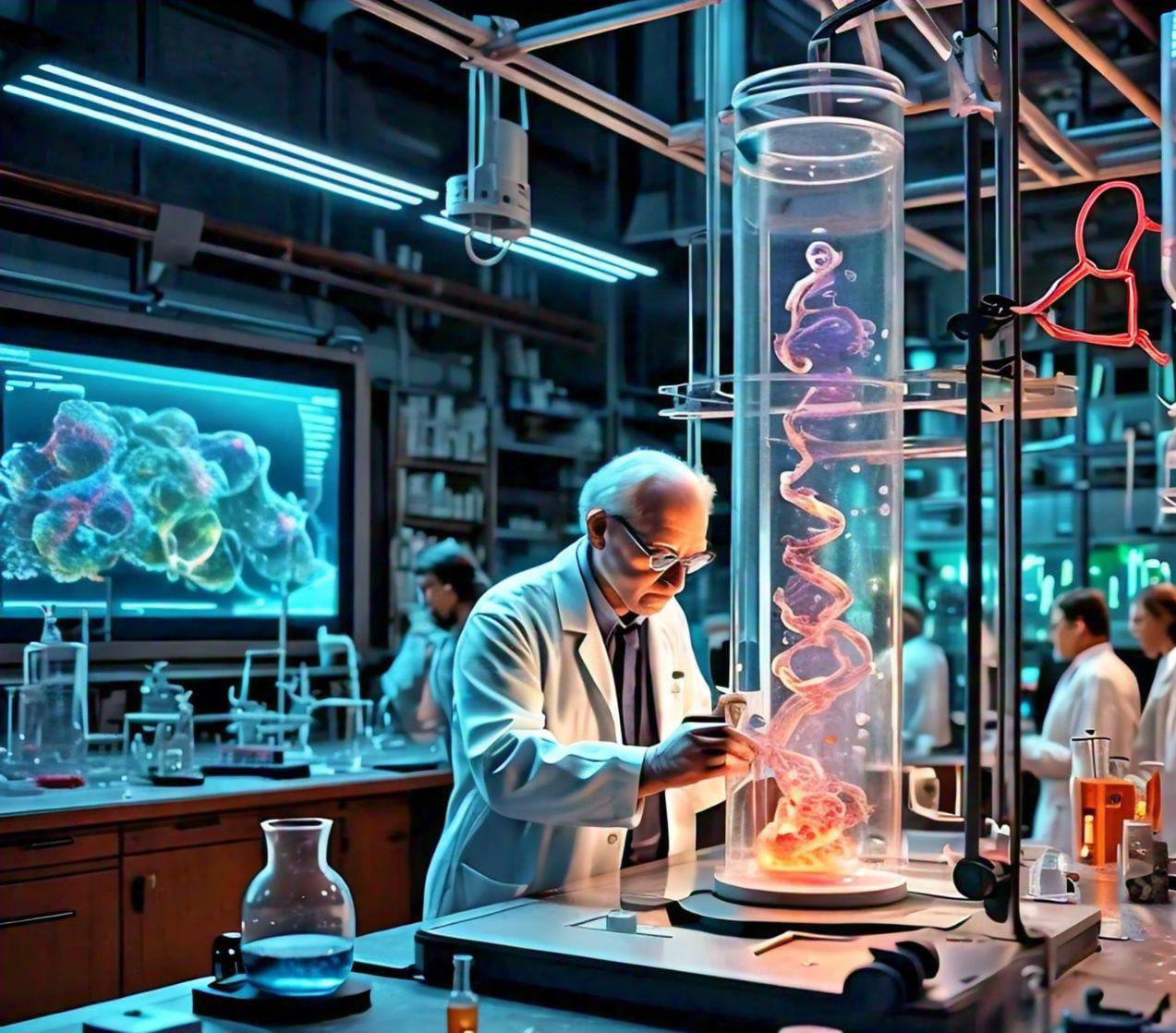The Development of Biotechnology: Revealing the Mysteries of Nature
Introduction
Understanding the Basics of Biotechnology
Biotechnology, at its core, is the application of biological systems and organisms to develop products and technologies that improve our lives. This section aims to provide a comprehensive understanding of biotechnology, encompassing its definition, scope, and significance in various fields.
The History of Biotechnology
Ancient Beginnings: Biotechnology in Antiquity
The roots of biotechnology can be traced back to ancient civilizations, where practices such as fermentation and plant breeding were employed to enhance food production and preserve perishable goods. These early endeavors laid the foundation for modern biotechnological advancements.
The Modern Era: Pioneering Discoveries and Innovations
The advent of microbiology in the 19th century marked a significant milestone in the development of biotechnology. Pioneers such as Louis Pasteur and Robert Koch elucidated the role of microorganisms in fermentation and disease, paving the way for revolutionary breakthroughs in medicine and industry.
Recent Advancements: Biotechnology in the 21st Century
In recent decades, rapid advancements in molecular biology, genetic engineering, and bioinformatics have propelled biotechnology to new heights. From the sequencing of the human genome to the development of cutting-edge gene-editing technologies like CRISPR-Cas9, the modern era of biotechnology is characterized by unprecedented innovation and discovery.
Applications of Biotechnology
Agricultural Biotechnology: Revolutionizing Crop Production
Agricultural biotechnology encompasses a wide range of techniques aimed at improving crop yield, quality, and resilience to environmental stressors. Genetically modified organisms (GMOs), precision breeding, and biostimulants are just a few examples of agricultural biotechnologies that have transformed farming practices worldwide.
Medical Biotechnology: Transforming Healthcare
Medical biotechnology encompasses the development of diagnostic tools, therapeutic agents, and personalized medicine tailored to individual genetic profiles. From recombinant insulin to monoclonal antibodies and gene therapies, medical biotechnology has revolutionized disease diagnosis, treatment, and prevention.
Industrial Biotechnology: Enhancing Manufacturing Processes
Industrial biotechnology harnesses the power of biological systems to produce renewable fuels, chemicals, and materials in an environmentally sustainable manner. Biocatalysis, metabolic engineering, and synthetic biology are key techniques employed in industrial biotechnology to optimize microbial processes and minimize environmental impact.
Environmental Biotechnology: Mitigating Environmental Challenges
Environmental biotechnology offers innovative solutions for pollution control, waste management, and resource conservation. Bioremediation, biofiltration, and microbial fuel cells are examples of environmental biotechnologies that harness the metabolic capabilities of microorganisms to remediate contaminated sites and mitigate environmental pollution.
Ethical Considerations in Biotechnology
The Importance of Ethical Guidelines
As biotechnology continues to advance, it is essential to uphold ethical principles and guidelines to ensure responsible innovation and equitable access to biotechnological benefits. Ethical considerations in biotechnology encompass a wide range of issues, including genetic privacy, biosecurity, and the equitable distribution of biotechnological innovations.
Addressing Concerns and Controversies
While biotechnology holds immense promise for addressing global challenges, it also raises legitimate concerns and controversies regarding safety, equity, and unintended consequences. Stakeholder engagement, transparent governance, and ongoing dialogue are essential for addressing these concerns and navigating the ethical complexities of biotechnological innovation.
Future Prospects of Biotechnology
Emerging Trends and Technologies
Looking ahead, the future of biotechnology holds exciting possibilities, with emerging trends such as synthetic biology, regenerative medicine, and bioinformatics poised to transform diverse industries and address pressing societal challenges. From personalized medicine and sustainable agriculture to biologically inspired materials and renewable energy, the potential applications of biotechnology are vast and far-reaching.
Potential Challenges and Opportunities
However, the realization of biotechnology’s full potential is not without challenges. Ethical, regulatory, and socioeconomic barriers may impede progress and limit the equitable distribution of biotechnological benefits. Nevertheless, by fostering collaboration, innovation, and responsible stewardship, we can harness the power of biotechnology to create a brighter, more sustainable future for all.
Conclusion
In conclusion, biotechnology represents a powerful tool for unlocking nature’s secrets and addressing some of the most pressing challenges facing humanity. From improving crop resilience and combating disease to mitigating environmental pollution and enhancing industrial processes, the applications of biotechnology are diverse and far-reaching. As we continue to push the boundaries of scientific discovery and technological innovation, it is essential to remain vigilant and ensure that biotechnological advancements are guided by ethical principles and serve the greater good.
Unique FAQs
- What is the role of genetic engineering in biotechnology? Genetic engineering plays a crucial role in biotechnology by enabling scientists to manipulate the genetic makeup of organisms, leading to advancements in medicine, agriculture, and industry.
- How does biotechnology impact the environment? Biotechnology offers innovative solutions for environmental challenges, such as bioremediation and sustainable agriculture practices, contributing to conservation efforts and ecological balance.
- What are some examples of biotechnological products in everyday life? Common examples include genetically modified crops, vaccines, antibiotics, enzymes used in laundry detergents, and biofuels derived from renewable sources.
- What are the ethical concerns surrounding biotechnology? Ethical concerns in biotechnology include issues related to genetic manipulation, biosecurity, privacy, and equitable access to biotechnological innovations.
- How can society ensure the responsible use of biotechnology? Society can promote responsible use of biotechnology through robust regulatory frameworks, public engagement, and ethical education to foster informed decision-making and ethical practices.








